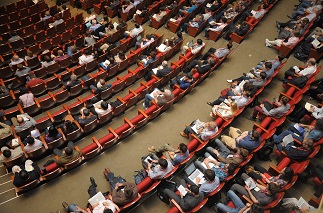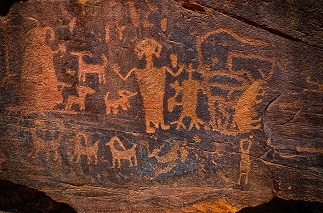
The notion of educommunication in intergovernamental organizations
This research analyzes the notion that the main international organizations of multilateral character have on the concept of educommunication (media literacy), by means of the correlational extract and analysis of the content of interpretative base of 2.648 information units from 12 organizations, both regional and transcontinental, including the United Nations, the Organization for Economic Cooperation and Development, the Arab League, the International Organization of la Francophonie, the Community of Portuguese-speaking Countries and the Organization of Ibero-American States, African Union, European Union, League of Arab States, Commonwealth of Independent States, Organization of American States, Commonwealth of Latin American and Caribbean States, Union of South American Nations, Association of Southeast Asian Nations, Cooperation Council for the Arab States of the Gulf and Pacific Islands Forum. Regarding the main results, it is evident that 83% of the organizations analyzed, except in the Community of Portuguese Language Countries and in the African Union, the convergence of the educational and communicative context is specifically presented under the terminology “media education”, which influences the formulation of domestic policies through the proposal of incentives and restrictions that affect decision making at the governmental level, alluding to the continuous change and the dynamic construction of identity.

Entrepreneurship competencies in energy sustainability MOOCs
Massive open online courses (MOOCs) have been gaining popularity as non-formal lifelong learning educational platforms. However, they have been criticized for their low completion rate and low ability for networking. The purpose of this paper is to analyze how incorporating entrepreneurial competencies in MOOCs develops attributes of educational innovation and collaborative projects. The research followed a three-stage process: in the first stage, a comprehensive literature review was conducted to identify dimensions of entrepreneurial skills and attributes of educational innovation in MOOCs. In the second stage, a quantitative study was carried out based on the analysis of pre- and post-test surveys taken by a sample of 6,517 participants. In the last stage, the interaction analysis model/computer-mediated communication analysis model was applied through qualitative analysis, using the MAXQDA tool to identify if entrepreneurship opportunities were generated in the interactions within the discussion forums of the MOOCs.The results show that the analyzed MOOCs have an overall completion rate of 12.55%, above the average of the rates found in the literature review. However, only 14.29% of the participants expressed at least one opportunity to generate ventures related to the topics of energy in the discussion forums. This research could help instructional designers and universities to consider the inclusion of entrepreneurship issues in the design of MOOCs’ content and to encourage more activities that promote networking among participants to identify business potential from the educational materials. This research is one of the very few studies on entrepreneurship competencies in MOOCs to understand how the inclusion of issues related to entrepreneurship in MOOCs can generate a positive impact on participants.

Gamified Platform Framing for Entrepreneur Competencies
The study aims to reveal the need to propose a digital network where entrepreneurs can disseminate their skills achieved beyond formal and normative education. The general objective is to design a gamification platform based on entrepreneurial skills. For this, the specific objectives are proposing a Delphi study to 15 experts obtaining a list of priority competencies in the profiles of entrepreneurs, then the second specific objective is integrating the selected competencies within an interface based on the use of game elements, resulting in a platform that displays the 5 priority competencies, learning through experience, motivation, spotting opportunities, working with others and valuing ideas with 5 game elements respectively, experience points, feedback, leaderboards, progress bar and badges. From the results obtained, it can be concluded that the model implemented will serve as a first precedent for the display of competencies, thus providing an alternative traceability to the skills achieved by entrepreneurial initiatives.

Media Competence in Spanish Secondary School Students. Assessing Instrumental and Critical Thinking Skills in Digital Contexts
The ways in which young people communicate have changed in line with the impact of technologies. This change has been accompanied by growing differences between the young, and their "liquid" experience, and adults with their "solid" experience, and these shapes the state of the question that defines young people as digital natives. This work analyses Spanish adolescents' level of media competence. The sample consisted of 672 students attending secondary schools in 10 provinces in Spain. The average age of the participants was 14. The study aims to show that, although today's adolescents are described as the digital generation, and there is a widely held belief that they are digital natives, their level of media competence is low and there is need for fomenting greater literacy skills in this field. The "ad hoc" questionnaire yielded results that indicate an overall medium level of media competence, but a skills shortage in the dimensions relating to critical thinking, such as in reception and audience, production and programming processes, and ideology and values. The conclusions question the supposed superior competence of digital natives in media. This study underlines the need for a clear definition of the concept of media competence from a convergence perspective.

Media competencies of university professors and students. Comparison of levels in Spain, Portugal, Brazil and Venezuela
Media competencies are a set of skills that every individual should possess in order to be able to consume and produce media and digital and information products in a critical and analytical way. This exploratory and comparative work analyses the level of media competence among 1,676 university students and 524 professors in Brazil, Spain, Portugal and Venezuela. One of the main results shows that the level of knowledge of technology and interaction — which is linked to digital competencies — does not depend solely on age, thus contradicting theories of digital natives and migrants. Our study also found that the general level of media competence is no better than medium to low when considering language, technology, interaction, production and dissemination, ideology and values, and aesthetics. These results point to the need to develop transversal actions for instructing both university professors and students in media competencies to face an ecosystem dominated by fake news and disinformation, as well as public policies directed at improving these skills among citizens at large.

Gamification in MOOCs: Engagement Application Test in Energy Sustainability Courses
Massive open online courses (MOOCs) have triggered a sudden change in the educational scene. Its characteristics of being free, heterogeneous, multi-thematic, and fostering lifelong learning have completely changed the instructional design scene, allowing these innovations and new architectures of teaching and learning to be included. However, MOOCs have been criticized by the scientific community for their high dropout rates and low overall completion rates, which has called into question their effectiveness as a pedagogical tool. This paper analyzes how the application of gamification strategies in MOOCs on energy sustainability affects participants' engagement and seeks to identify what types of interactive gamification media are more useful in generating interest and motivation in students. In order to do so, a mixed quasi-experimental method is used. A gamification board with challenges, badges, and leaderboards to a sample is used, and at the same time, this platform is analyzed using the integrated theoretical gamification model in e-learning environments. In the MOOCs where gamification strategies were applied, a global completion rate of 14.43% was obtained, while in those without gamification, 6.162% was obtained. Likewise, the degree of student engagement with respect to the completion rate of activities was much higher in the gamified platform (28.032%) than in the traditional design (13.252%). The results show that applying gamification strategies in MOOCs achieves a higher level of engagement and student motivation.

Decolonizing matrices in the communication to enter into a dialogue with the West
This paper examines the premises of decolonization in the Communication Studies and practice that challenges the West civilization based on the critical thinking of precursors and contemporary intellectuals of Latin America. The principles and values of communication and life are recovered for the constitution of a study and the exercise of intercultural communication for well-living, evidencing the need for an alternative communication epistemology based on matrices formulated by authors such as Luis Ramiro Beltrán and Erick Torrico under the premise of “liberation communicology” against the progress-mercantilism and the modernity of communication. This approach focuses on the horizontality and the circularity of the communicative process, and above all in the recovery of its ontological and integral level in the study-knowledge and exercise of communication. Philosophy and the Amazon do not claim the annulment of the way of reasoning and the Western procedure, the embargo, the search for dialogue and respect for indigenous wisdom and community life. Consequently, unity in diversity is sought, understood as the comprehensive understanding of the thought of communicative communication, demonstrating the need to establish a dialogue of knowledge between indigenous wisdom and knowledge of the West, assuming as a challenge to urge to live in harmony between human beings and nature, where communication is the link for the study and practice of the culture of life.

Comparative analysis of media framing in international news agencies east-west. Case Study: Attack at Istanbul airport
Social realities are discursive constructs, so that attitudes and representations are the reflection of an informative approach. In this sense, the cultural and linguistic gaps between different civilizations, together with a discursive construction of a war nature, could be creating the breeding ground for a continuous confrontation between East and West. The present study analyzes the different rhetorical frames of the international news agencies Reuters, Al Arabiya, Al Jazeera and Associated Press about the terrorist attack at the Istanbul (Turkey) airport on July 28, 2016. A quantitative study of the figures speech and the most repeated topics in the headlines of the attack is carried out. The power of the media in public opinion and the construction of reality generate a discussion about how these news are spread and their effects. The objective is to compare the different rhetorical frames in both civilizations and to identify if stereotypes are projected and if this framing contributes to the spectacularization of the conflict. The main result is that there are no significant discursive differences, which leads to the conclusion that east-west rhetorical figures are used to produce a certain effect in the population, among those that highlight the euphemisms, disfemisms, demonization and discursive polarization, resources that serve to emphasize fear and create even larger gaps of social significance

Procedural model in the evaluation of public policy through gamification
This article proposes a procedural model designed to optimize the experience of citizens in decision making of public policies through gamification. The study assumes that gamification increases motivation and contributes to increase involvement within a specific area. In this case, gamification is used to encourage citizens’ engagement in decision-making, based on three models of evaluation of public policies that incorporate civil participation in three different roles: auditor, passive and active. After applying the Delphi methodology, the results of reliability and internal consistency show that experts attribute a higher value to the model of active participation using gamification. In conclusion, the model designed opens a new area of knowledge within the evaluation of public policies, embedded in the interactivity of the media context.

Media Competencies for the Citizenship Training of Teachers from Andean America: Colombia and Ecuador
In an increasingly saturated information and infoxicated world, Media Literacy emerges as a necessity for effective filtering of the vast amount of information we consume. The present research aims to quantitatively analyze the level of media competencies of Colombian(Medellin) and Ecuadorian (Loja and Zamora) teachers by means of the application of an adaptation of the taxonomy from the media competencies model, which consists of 6 dimensions and a total of 12 indicators. The total analyzed sample was comprised of 654 teachers from 81 public and private institutions. A data-gathering instrument was used with the aim of determining their level of media competencies from each of the dimensions. The results showed a low to medium level of media competency knowledge, which illustrated the need for priority interventions based on local, regional and international works, namely those that mobilize scientific, academic and political collaboration to improve the performance of a population that should lead the general training of citizens in media competencies.
